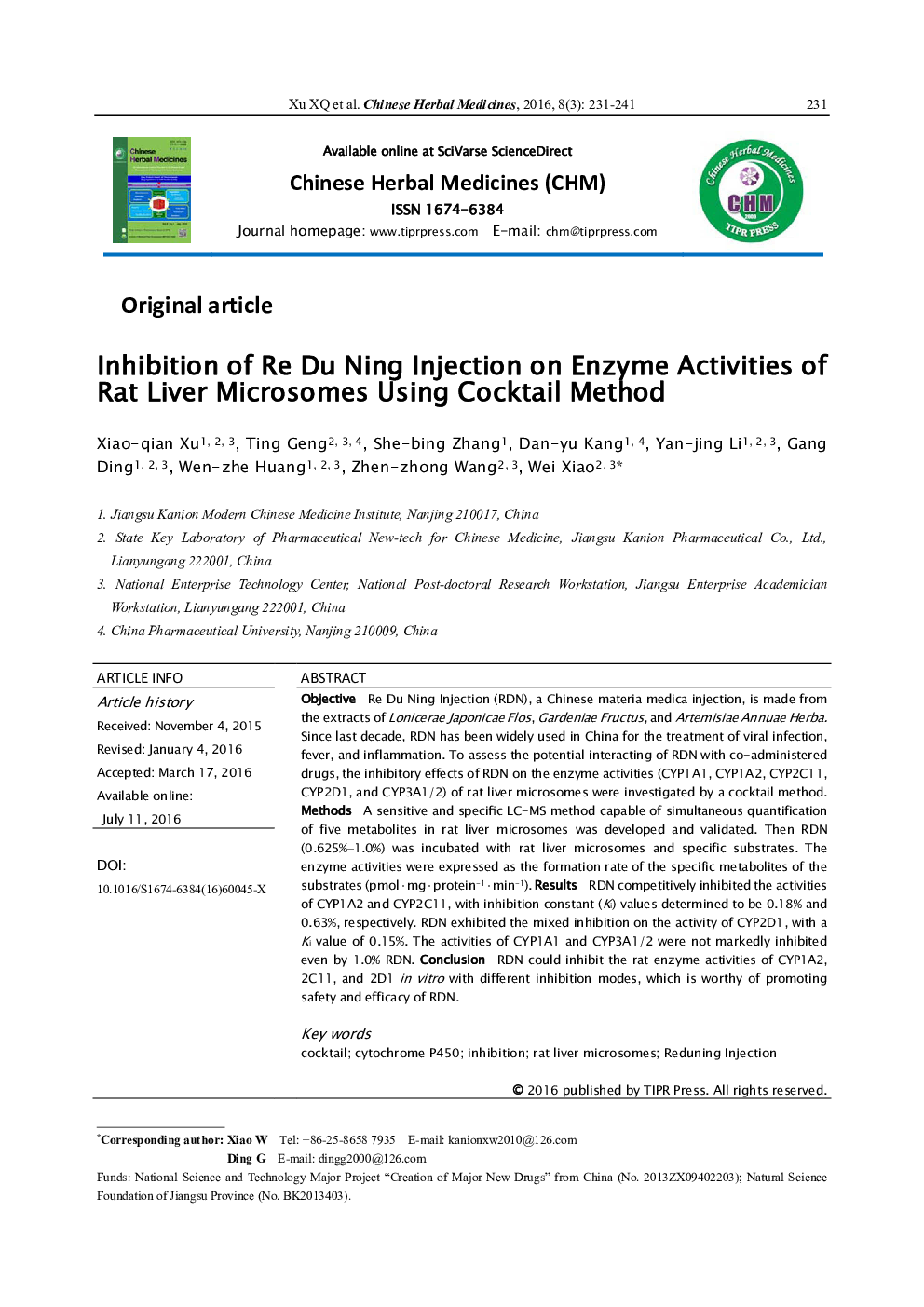| Article ID | Journal | Published Year | Pages | File Type |
|---|---|---|---|---|
| 3097842 | Chinese Herbal Medicines | 2016 | 11 Pages |
ObjectiveRe Du Ning Injection (RDN), a Chinese materia medica injection, is made from the extracts of Lonicerae Japonicae Flos, Gardeniae Fructus, and Artemisiae Annuae Herba. Since last decade, RDN has been widely used in China for the treatment of viral infection, fever, and inflammation. To assess the potential interacting of RDN with co-administered drugs, the inhibitory effects of RDN on the enzyme activities (CYP1A1, CYP1A2, CYP2C11, CYP2D1, and CYP3A1/2) of rat liver microsomes were investigated by a cocktail method.MethodsA sensitive and specific LC-MS method capable of simultaneous quantification of five metabolites in rat liver microsomes was developed and validated. Then RDN (0.625%–1.0%) was incubated with rat liver microsomes and specific substrates. The enzyme activities were expressed as the formation rate of the specific metabolites of the substrates (pmol · mg · protein−1 · min−1).ResultsRDN competitively inhibited the activities of CYP1A2 and CYP2C11, with inhibition constant (Ki) values determined to be 0.18% and 0.63%, respectively. RDN exhibited the mixed inhibition on the activity of CYP2D1, with a Ki value of 0.15%. The activities of CYP1A1 and CYP3A1/2 were not markedly inhibited even by 1.0% RDN.ConclusionRDN could inhibit the rat enzyme activities of CYP1A2, 2C11, and 2D1 in vitro with different inhibition modes, which is worthy of promoting safety and efficacy of RDN.
